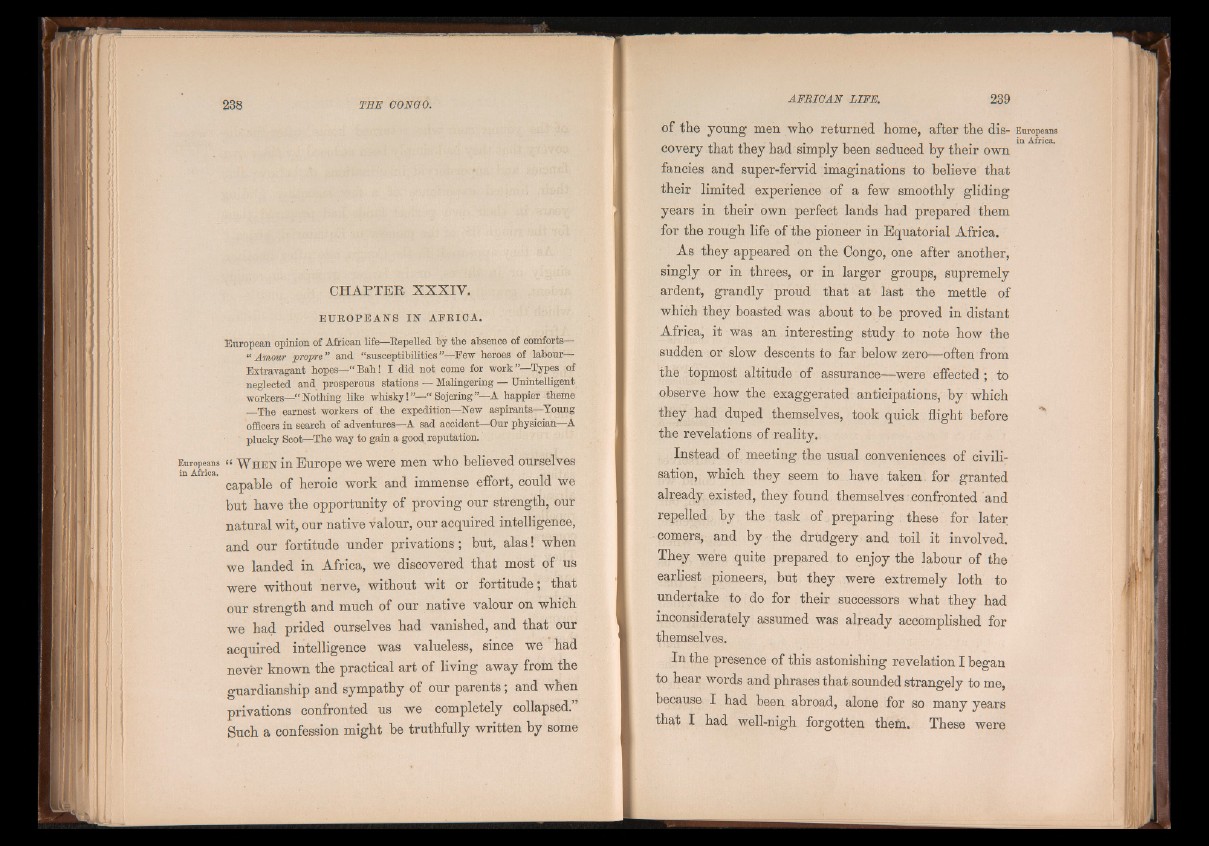
Europeans
in Africa.
CHAPTER XXXIY,
EUROPEANS IN AFRICA.
European opinion of African life—Repelled by the absence of comforts—
“Amour propre” and “susceptibilities”—Few heroes of labour—
Extravagant hopes—“ Bah! I did not come for work”—Types of
neglected and prosperous stations — Malingering — Unintelligent
workers—“ Nothing like whisky!”—“ Sojering”—A happier theme
—The earnest workers of the expedition—New aspirants—Young
officers in search of adventures—A sad accident—Our physician—A
plucky Scot—The way to gain a good reputation.
“ W h e n in Europe we were men who believed ourselves
capable of heroic work and immense effort, could we
but have tbe opportunity of proving our strength, our
natural wit, our native valour, our acquired intelligence,
and our fortitude under privations; but, alas! when
we landed in Africa, we discovered that most of us
were without nerve, without wit or fortitude; that
our strength and much of our native valour on which
we had prided ourselves had vanished, and that our
acquired intelligence was valueless, since we had
never known the practical art of living away from the
guardianship and sympathy of our parents; and when
privations confronted us we completely collapsed.
Such a confession might he truthfully written by some
AFRICAN LIFE. 239
of the young men who returned home, after the dis- Europeans
covery that they had simply been seduced by their own
fancies and super-fervid imaginations to believe that
their limited experience of a few smoothly gliding
years in their own perfect lands had prepared them
for the rough life of the pioneer in Equatorial Africa.
As they appeared on the Congo, one after another,
singly or in threes, or in larger groups, supremely
ardent, grandly proud that at last the mettle of
which they boasted was about to be proved in distant
Africa, it was an interesting study to note how the
sudden or slow descents to far below zero—often from
the topmost altitude of assurance—were effected ; to
observe how the exaggerated anticipations, by which
they had duped themselves, took quick flight before
the revelations of reality.
Instead of meeting the usual conveniences of civilisation,
which they seem to have taken, for granted
already, existed, they found themselves confronted and
repelled by the task of preparing these for later
comers, and by the drudgery and toil it involved.
They were quite prepared to enjoy the labour of the
earliest pioneers, but they were extremely loth to
undertake to do for their successors what they had
inconsiderately assumed was already accomplished for
themselves.
In the presence of this astonishing revelation I began
to hear words and phrases that sounded strangely to me,
because I had been abroad, alone for so many years
that I had well-nigh forgotten them. These were